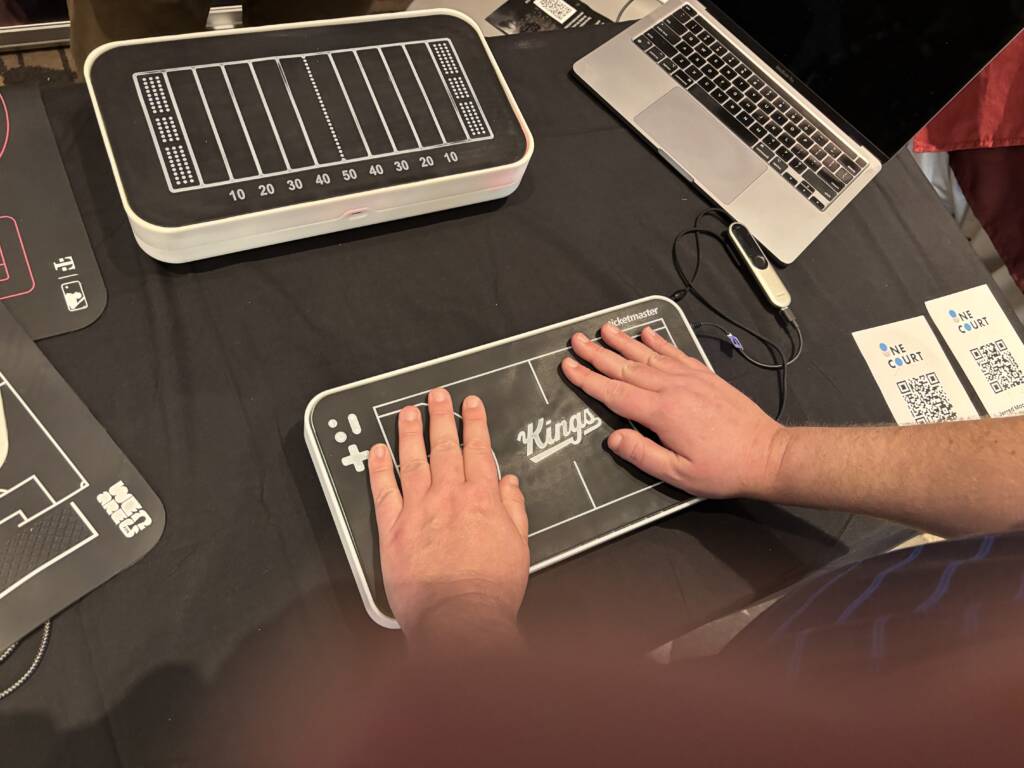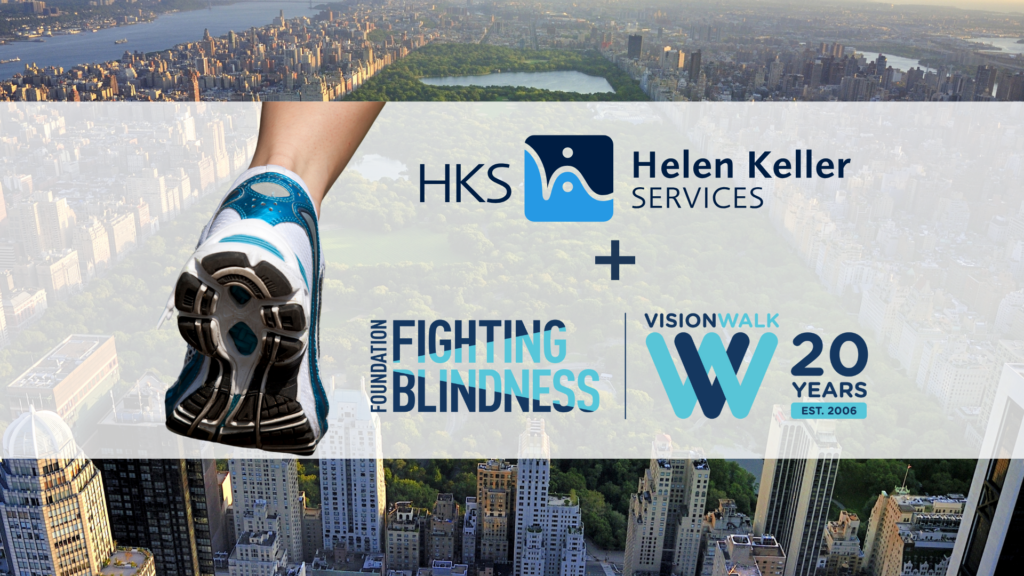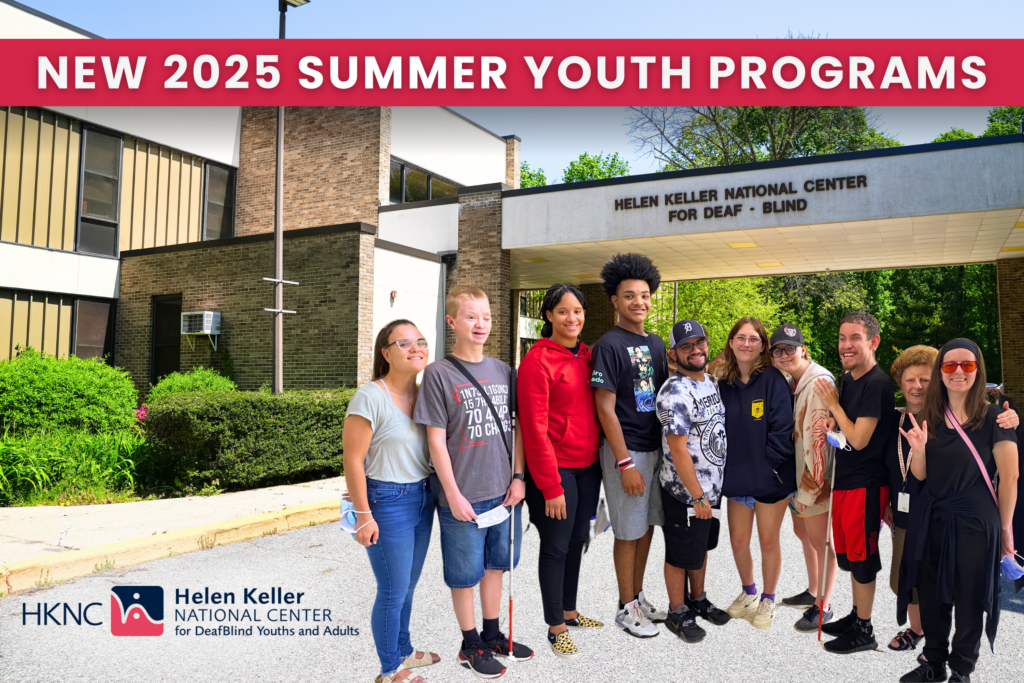Helen Keller Services and Polara Collaborate to Advance Pedestrian Accessibility: Bridging Innovation with Real-World Experience
Helen Keller Services collaborates with Polara Enterprises to improve street crossing safety through an innovative workshop with traffic engineers, mobility specialists, and community members.
On March 26-27, Helen Keller Services (HKS) hosted an innovative two-day collaborative workshop with Polara Enterprises, the nation’s leading manufacturer of accessible pedestrian signals (APS). This landmark event brought together diverse stakeholders to address one of the most significant challenges faced by individuals who are blind, DeafBlind, or have low vision: safely navigating street crossings in their communities.
Transformative Learning Through Direct Experience
The collaboration included sessions at both Helen Keller Services for the Blind in Brooklyn and Helen Keller National Center in Sands Point, with a particularly impactful experiential learning component in Port Washington.
In what became the workshop’s defining moment, traffic engineers from Nassau County, Suffolk County, and New York State participated in blindfold experience walks led by certified Orientation and Mobility specialists. This powerful exercise allowed these infrastructure decision-makers to navigate street crossings without sight, experiencing firsthand the challenges that community members with vision loss face daily.
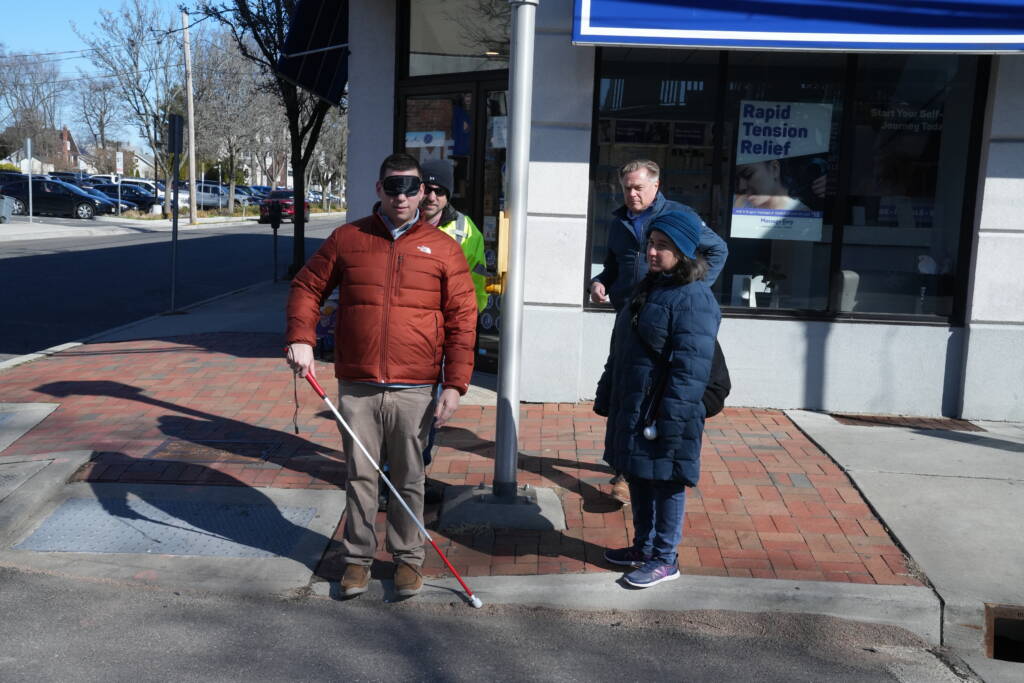
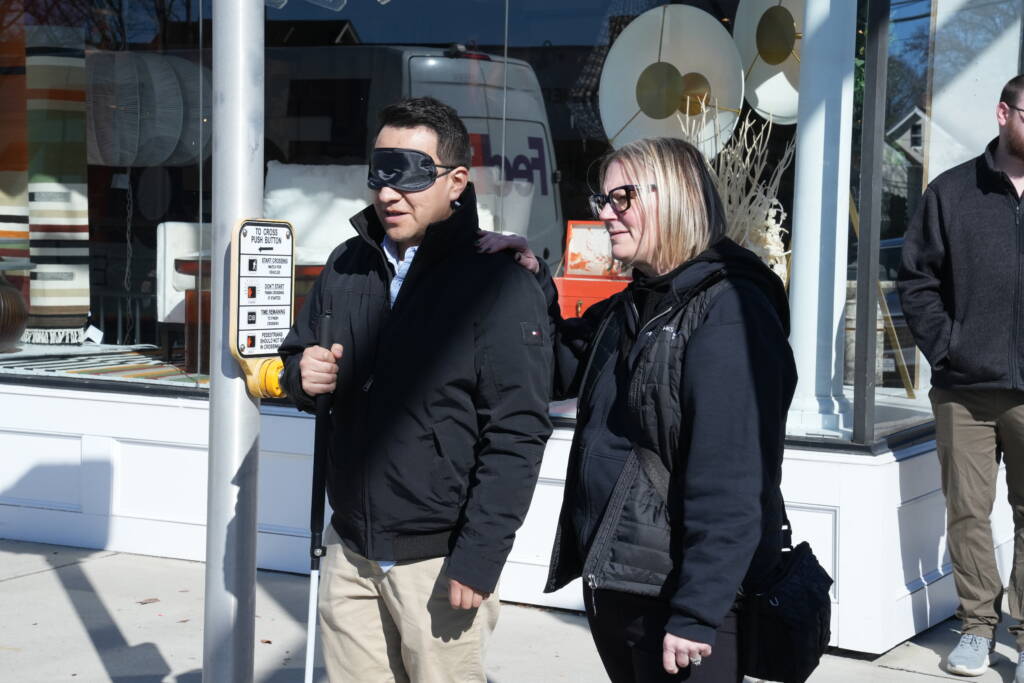
“We were so fortunate to have Polara visit us at Helen Keller this week,” shared Taylor McCaffrey, who organized the collaboration. “A big thank you to Sarah Savery and Matthew Baker from Polara, and Chris Pagniello from Traffic Systems Inc., for making it happen. They, along with traffic engineers from Nassau/Suffolk County and the State, went under blindfold to get a feel for why we at HKS are so passionate about the installation of Accessible Pedestrian Signals.”
The impact was immediate and profound. Engineers who design and implement street infrastructure left with a completely transformed perspective on accessibility needs. By literally walking in different shoes, these professionals gained insights that could directly influence future planning decisions across New York communities.
Technical Innovation Meets Lived Experience
The workshop integrated detailed technical presentations on Polara’s state-of-the-art accessible pedestrian signals with the practical expertise of HKS’s orientation and mobility specialists and the lived experiences of program participants.
During the sessions, participants analyzed three key intersections along Main Street in Port Washington, documenting specific challenges and opportunities for accessible pedestrian signal implementation. Many of these intersections currently lack APS technology, highlighting the urgent need for infrastructure improvements.
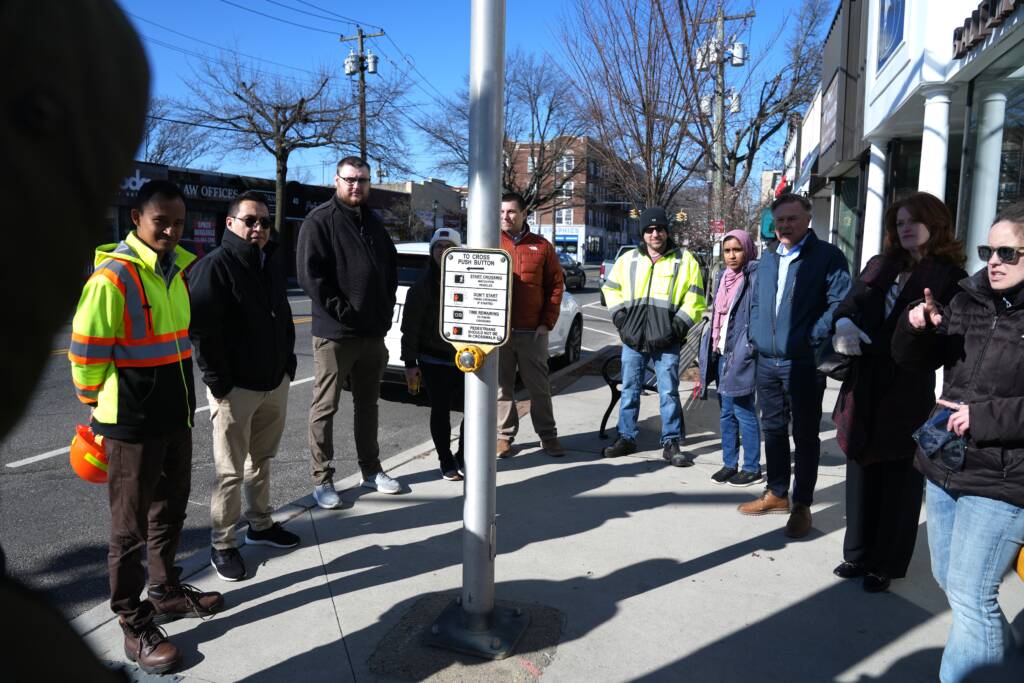
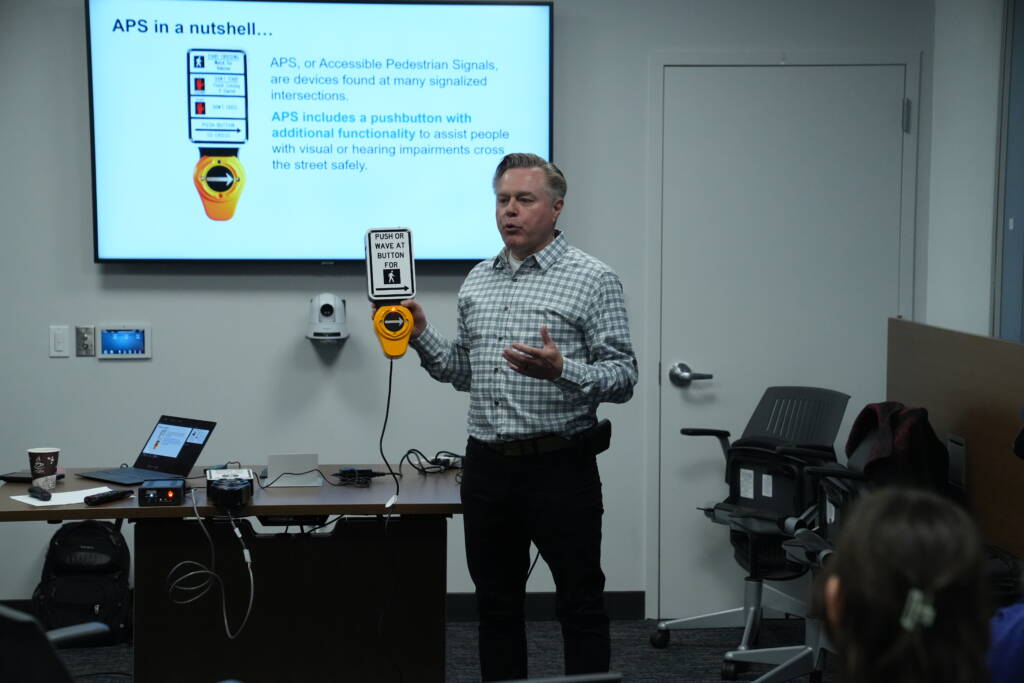
These signals provide essential auditory and tactile information to help individuals with visual impairments know when it’s safe to cross streets. Modern APS systems include features such as audible tones, speech messages, vibrating surfaces, and high-contrast visual cues that make crossing busy intersections safer and more independent for all pedestrians.
Empowering Community Advocates
Beyond connecting technology providers with implementation experts, the workshop served as a valuable educational opportunity for members of the blind and DeafBlind community. Participants gained detailed knowledge about accessible pedestrian technology and specific information they can use to effectively advocate for these vital accessibility improvements in their own neighborhoods.
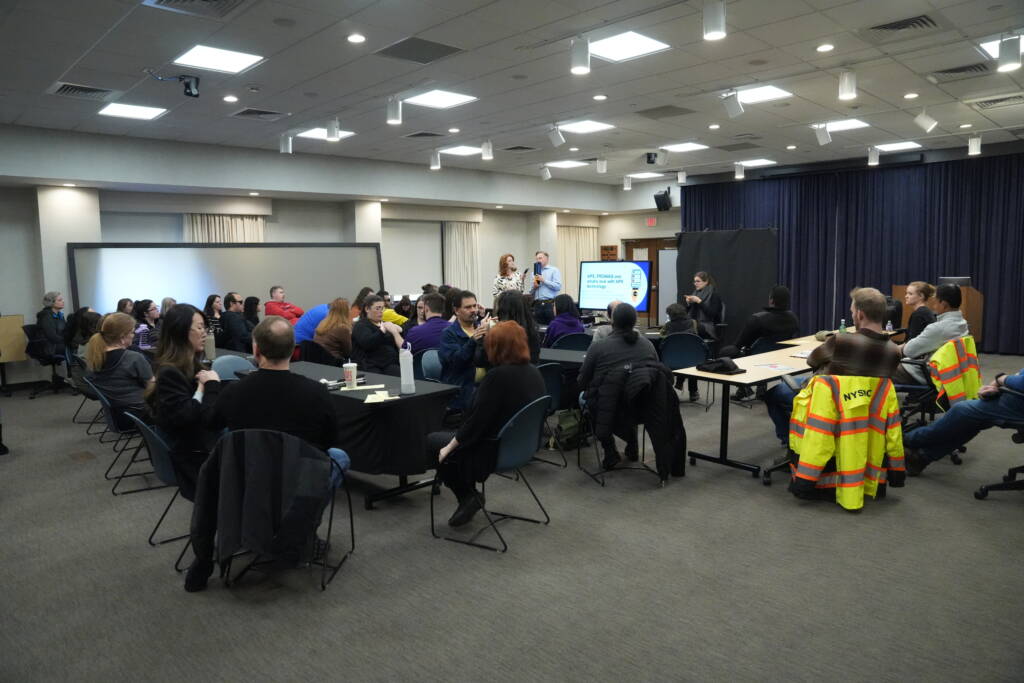
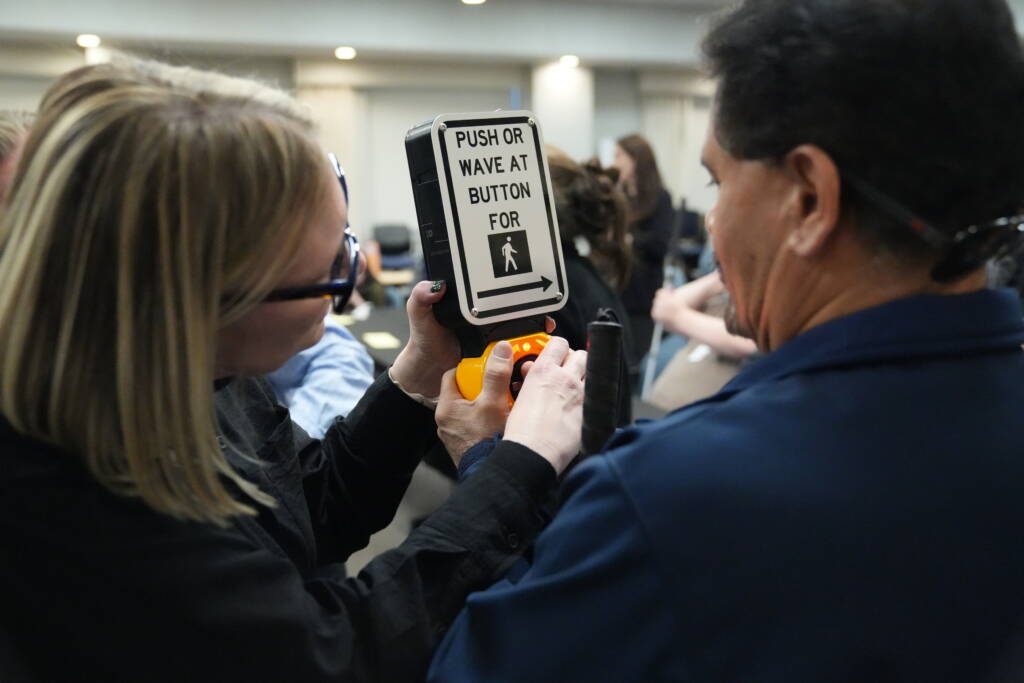
“APS, more specifically Polara’s APS, go a long way in making our communities more accessible for people who are blind and DeafBlind,” noted McCaffrey, highlighting the importance of these technological solutions in promoting independence and safety.
By equipping community members with both technical knowledge and advocacy strategies, the workshop has sown seeds for grassroots initiatives that could lead to concrete improvements across multiple communities.
Building Bridges Between Sectors
This collaboration exemplifies Helen Keller Services’ unique position as the essential bridge between innovative technology and real-world implementation. By bringing together technology providers, community members, orientation and mobility specialists, and transportation officials, HKS created a space where technical knowledge, lived experience, and implementation expertise could combine to drive meaningful change.
The diverse group of attendees included representatives from the NYS Commission for the Blind, researchers from Columbia University, traffic engineers from multiple jurisdictions, and members of various community organizations. This cross-sector approach demonstrates HKS’s leadership in advancing accessibility through practical application and community engagement.
“Another big thank you to all who attended and to my fellow COMS for keeping everyone safe!” added McCaffrey, acknowledging the collaborative spirit that made the workshop successful.
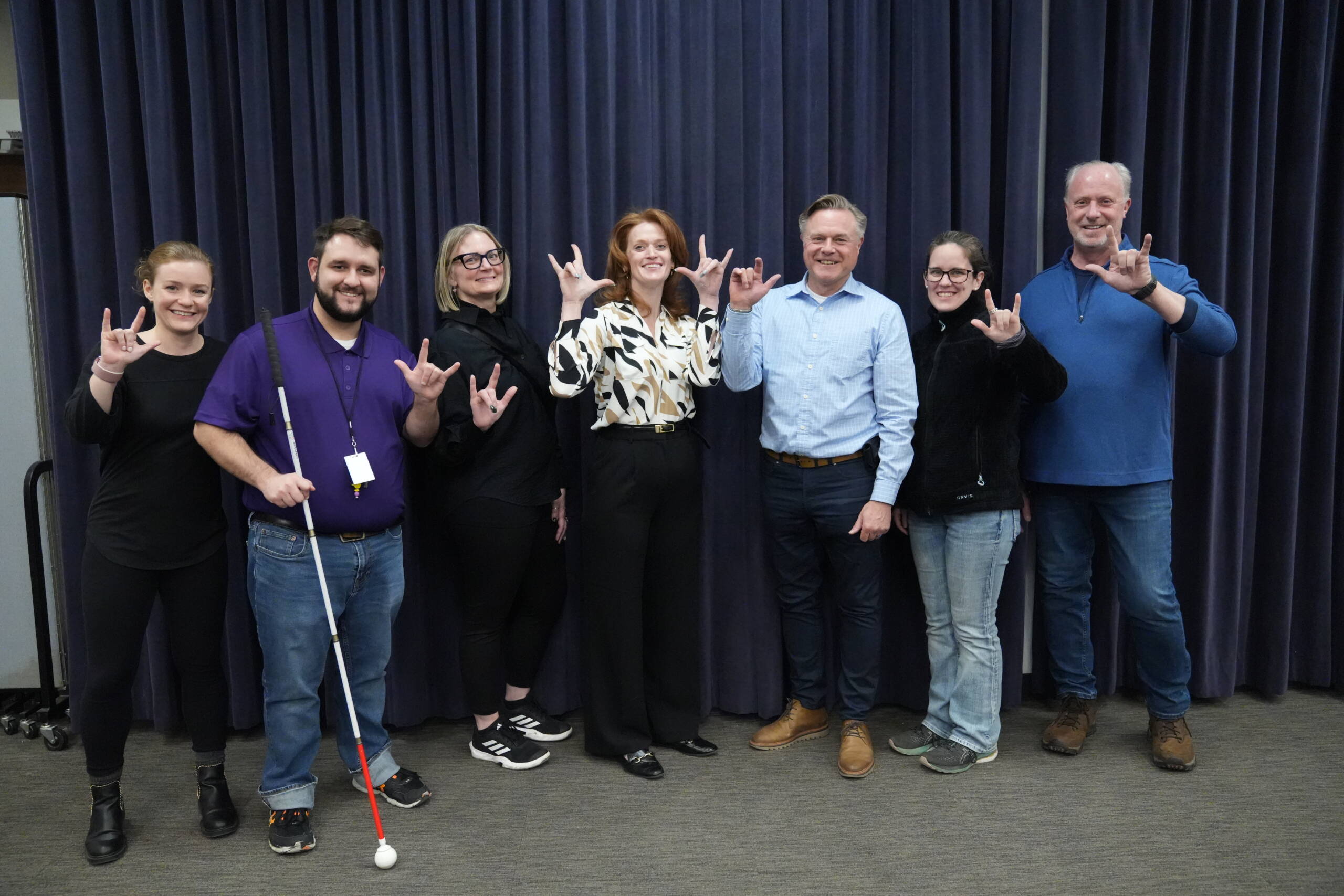
Looking Forward
The findings and insights from this workshop will inform future advocacy efforts and provide technical guidance for municipal planners and transportation departments across New York. By documenting specific challenges and potential solutions at actual intersections, participants have created a valuable resource for implementation.
Helen Keller Services continues to lead in advocating for accessible infrastructure and providing comprehensive services to individuals who are blind, DeafBlind, or have low vision. This collaboration with Polara exemplifies the organization’s commitment to creating pathways to independence at every level of community participation.
As we continue our mission of advancing access for the blind, low vision, and DeafBlind communities, partnerships like this demonstrate how bringing together diverse perspectives can lead to solutions that benefit entire communities.
